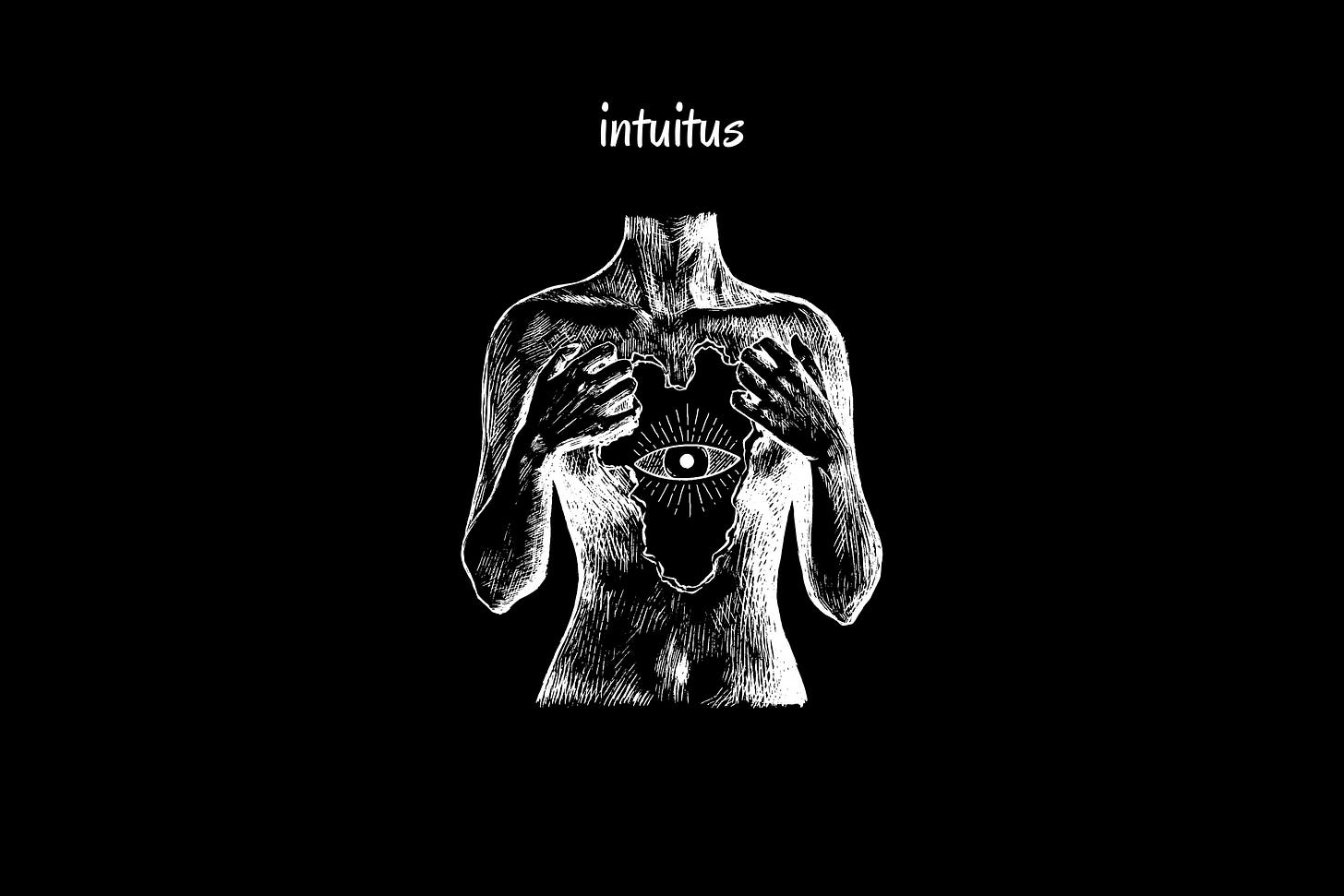Intuition, that elusive whisper from within
No audio with this one my fellow Philo’s. When the muse channels. You express.
Intuition, that elusive whisper from within, is deeply rooted in the realm of the unconscious mind.
In Greek, the word for intuition is "διαίσθηση" (pronounced "diaísthisi"). Intuition refers to the ability to understand or perceive something instinctively without needing conscious reasoning or analytical thinking.
It is a gut feeling or an innate sense that often guides decision-making or problem-solving in situations where there is limited information or time.
As the great Swiss psychiatrist Carl Jung posited, the unconscious holds a wealth of information, emotions, and experiences that can guide us on our journey through life.
As an expression of this inner wisdom, our intuition is a powerful force that can lead us to the opportunities and experiences that align with our true purpose and foster personal growth.
Jung believed that engaging with the unconscious through the process of individuation could lead to a more integrated and authentic self.
By listening and acting on our intuition, we are tapping into this deep reservoir of knowledge and insight, allowing us to make decisions that reflect our innermost values and desires.
One of the reasons why it's so crucial to listen and act on our intuition is that opportunities are fleeting, often appearing as synchronicities – meaningful coincidences that Jung believed were manifestations of the collective unconscious.
These moments present themselves as windows of time, during which we must seize the opportunity or risk losing it forever.
Our intuition can sense these synchronicities, guiding us toward choices that resonate with our inner truth.
When we disregard our intuition and allow opportunities to pass, we may find ourselves grappling with a sense of loss and regret.
The road not taken can haunt us, leaving us to wonder what could have been if we had only had the courage to delve into the depths of our unconscious and follow our instincts.
This regret can weigh heavily on our hearts, diminishing our confidence and making it more challenging to access the inner wisdom that resides within us.
Moreover, acting on our intuition can lead to personal growth and self-discovery, aligning with Jung's concept of individuation, the process by which we become our true, unique selves.
When we trust our instincts, we are embracing our authentic selves, shedding the layers of fear and self-doubt that can hold us back from reaching our full potential.
Taking action on our intuition can help us better understand who we are and what we genuinely desire, allowing us to make more informed decisions that reflect our values and aspirations.
Conclusion
Developing the ability (skill) not only to listen but to act on our intuition is paramount because opportunities in life are fleeting, and if we fail to seize them, we may be left with feelings of regret and missed potential.
Trusting our instincts allows us to tap into the rich depths of our unconscious mind, as Jung believed, and embrace personal growth, individuation, and a more fulfilling, purpose-driven life.
Final Thoughts
Don’t wait.
The moment the thought arises, it is because it already exists in another.



Something I am working on understanding is that my intuition will not always guide me into safe, feel good experiences. Some times it purposefully leads me into being the turkey, because that is what I am meant to experience at the moment. This lesson has been the hardest for me... I loved your perspective on being the turkey and how to bounce back into Trust! Making meaning of it all is the purpose!